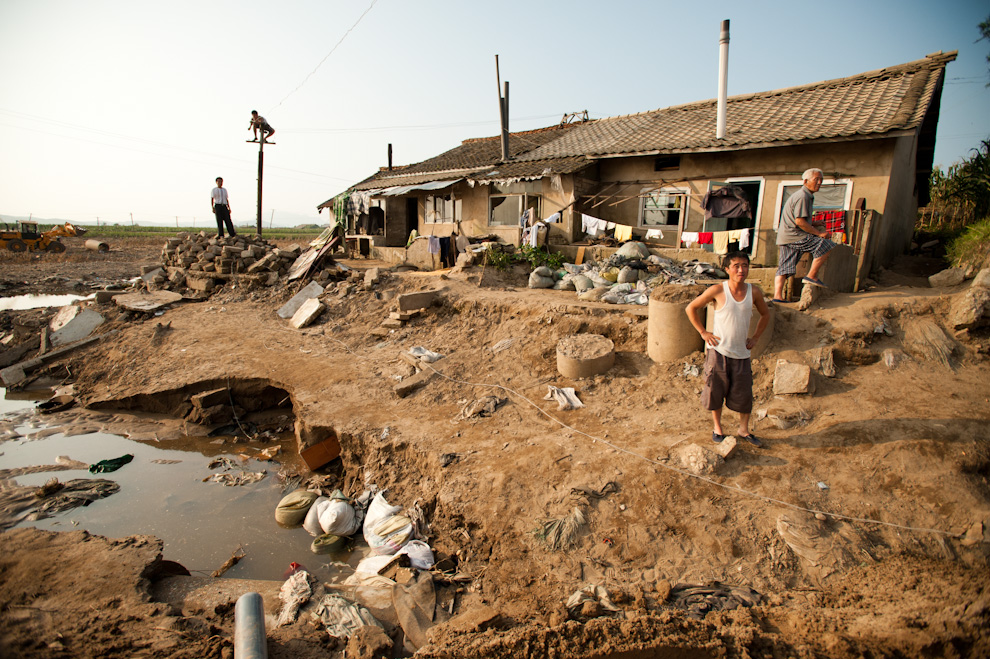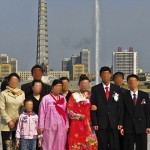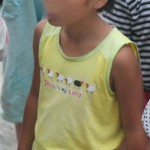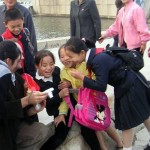According to Choson Exchange:
Post-Lecture Brief on North Korea’s Economy/Business Environment
This is our report from our lecture series on Finance and Economic Strategy in Pyongyang. It captures things we learn that will enable us to provide better training, and helps to inform readers on North Korea’s business and economic environment. Highlights are below.
Need and demand for skills upgrading: Lecturers agreed that there is a strong need for training as participants’ financial knowledge and skills, with a few exceptions, are shallow. This is also reinforced by our survey findings. More importantly, participants expressed strong interest in further training programs, which is not always the case in North Korea.
Managing Knowledge-Based Economies & FDI of key interest: Based on discussions with participants, knowledge-based economies and the management of FDI inflows are of great interest to our audience.
Newly-formed economic institution non-operational as yet: An institution meant to play a key role in economic development and was formed in recent years have not yet become operational.
Choson Exchange also received some coverage in the Korea Times:
While the outside world has been keen to know what was going on inside North Korea regarding the unfulfilled high drama of a key Workers’ Party conference, a group of foreigners actually stayed in Pyongyang during that time, meeting with top officials such as Choe Thae-bok, secretary of the Workers’ Party Central Committee.
“Choe Thae-bok highly commended our work and sent the president of Kim Chaek University and the vice president of the State Academy of Sciences to meet with us privately,” said Geoffrey See, a Singaporean, who led an international group of 11 people, hailing from the United States, the U.K., New Zealand, China, and Malaysia.
Besides the group’s diverse country representations, their academic credentials are also pretty impressive. See is a recent Yale graduate. The others are from universities such as Oxford, M.I.T, and University of Chicago.
They were not in North Korea for political purposes, but their presence attracted enough attention from North Koreans. Reporters from the North’s official Korean Central News Agency also tagged along with them.
Apparently, the North Koreans were quite impressed by their academic backgrounds too. “The North Korean official would introduce us to others by saying: `This person is from this university.’ And people would respond: ‘Oh, I heard about the name of the school!’” See said.
What See and his friends are doing now may not hit the international headlines. But it’s potentially a very significant step that may have a lasting implication for the future of the world’s most isolated nation.
See is the director of the Choson Exchange, a non-profit organization that provides training to North Koreans in international finance, economics and law.
“North Koreans need some kind of help in these areas,” See said in an interview at a coffee shop in Beijing Friday afternoon.
In Pyongyang, See and his group members taught North Koreans how to use computers for e-training in finance. They also offered lectures on the U.S. subprime crisis and the possibility of the Chinese yuan as an international trade settlements currency.
Although North Korea is under international sanctions, what See’s group does is not illegal as they only offer educational training and don’t do business with North Koreans.
In interacting in an “up-close and personal” manner, See and his group discovered something surprising. “The North Koreans were actually quite sophisticated people. They know what’s happening in the outside world,” said a financial analyst who went to Pyongyang with See, but preferred not to be identified.
All people in the Choson Exchange work on a volunteer basis. For their North Korean trip, they bought their own airplane tickets, and paid for meals and lodgings too. They also have full-time jobs as bankers, consultants, lawyers and Ph.D. students.
Naturally, a question arises as to “why” they do all this?
“We get this question a lot,” said See. “Very few outside people are involved in North Korea today. We want to provide training and make a greater impact,” he said.
“The financial institutions we met are very keen to have us train them and help build the institutions ― especially the newly formed State Development Bank. There is an incredible demand for training,” See said.
Ultimately, the members of the Choson Exchange want their efforts to be part of a greater humanitarian engagement crusade to help North Korea to become integrated into the international community.
Adventurism and personal intellectual curiosity about the “veiled country” was part of their drive as well. “North Korea is opaque, which makes it even more interesting. It fascinates me,” said the financial analyst.
While being frank about their motivations, they were also cautious about not to be seen as naive either. “We don’t want to be seen as a young and idealistic bunch,” said See, who will spend several months at the Kim Il-sung University starting from March next year to share Singapore’s economic development model.
While they are committed to a long and determined effort, they are financially crunched. “What we need most at this time is more funding. We need at least two full-time staffers who will manage our administrative work,” said See, who also hopes to sponsor some North Koreans for overseas training programs.
It’s not clear whether See’s effort of helping North Korea to “come out” will work eventually.
“We don’t assume that they will open up,” See said. “But if you don’t try, you never know.”




